You’ve taken the time to invest in good concrete countertops for your kitchen or bath. But how can you clean them the most effectively and safely? Fortunately, it’s not that difficult to get your concrete counters clean. In fact, most stone surfaces are similar enough that some basic cleaning principles are the same for all of them. But first, let’s answer the immediate question: can I use granite cleaner?
This is an easy one to answer: yes. A cleaner that’s designed to work on granite should be fine for concrete, but read on for some possible caveats and things to watch out for.
Make sure to add a sealer
Like with any porous surface, you’ll want to make sure your counter is properly sealed. In addition to protecting the surface from marring, a sealer stops bacteria or other nasties from growing under the surface of the concrete. And once sealed, it might need to be re-sealed over time. Check with your installers as to what they advise.
And unfortunately, ‘sealed’ does not mean ‘invincible’. Clean up any spills that happen and don’t allow them to linger long or else they can stain permanently, sometimes even etch into the surface.
Treat it right
Stone countertops aren’t indestructible. Hot pans on the surface or dropping something heavy on them can leave a permanent mark. Make sure to use trivets or other protective means before setting anything hot on the counter. Always use a cutting board when chopping food (if only to keep your knives intact).
Get the right cleaner
While granite cleaner should work fine on concrete, you’ll want to make sure you’re not using anything that’s too abrasive. You’ll want to use something with a neutral pH so as not to be too harsh for the concrete surface. Dish soap and hot water will work fine, but there are also a number of cleaners made for stone surfaces.
And don’t use the wrong ones.
Some examples of cleaners that you don’t want to use on your concrete are ammonia, bleach, lemon juice, or vinegar. Notice something in common with all those substances? That’s right: they’re acidic. All the more reason to use something neutral. A seemingly harmless acid like lemon juice can etch concrete, requiring buffing to remove the marks.
Even your water can do damage
Areas with hard water might have problems with concrete counters. The minerals in the water can wear down the sealant or even the stone itself. A water softening system or conditioner can help with this.
Check it out first
Spot testing is always a good idea when trying a new cleaner. Find a hidden or unobtrusive spot on your counter and test it out, seeing if it leaves a mark or any scratching when you scrub.




